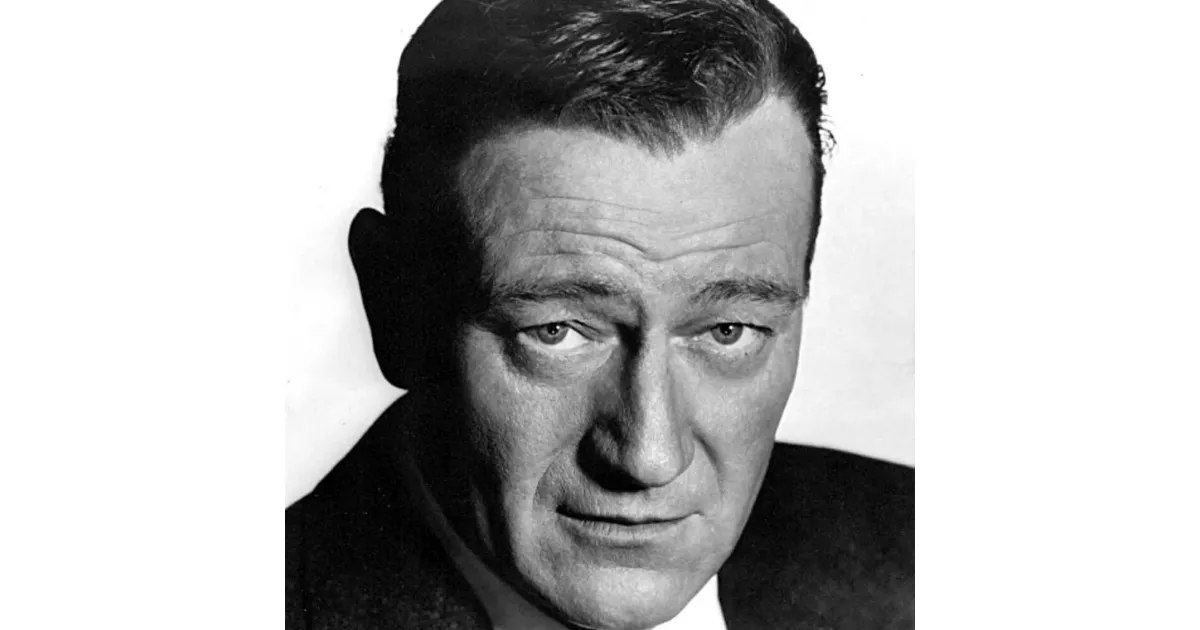John Wayne, born Marion Robert Morrison and nicknamed "Duke," was a highly popular American actor. He rose to fame during Hollywood's Golden Age, primarily starring in Westerns and war movies. Wayne's career spanned from the silent era through the New Wave, with a total of 179 film and television appearances. He remained a top box-office draw for three decades, acting alongside many prominent stars. The American Film Institute recognized his significant contributions by naming him among the greatest male stars of classic American cinema.
May 26, 1907: Marion Robert Morrison Born
On May 26, 1907, Marion Robert Morrison, who would later be known as John Wayne, was born. He would become a famous American actor.
May 30, 1907: Report of Wayne's Birth
On May 30, 1907, the Winterset Madisonian reported on page 4 of their edition that Marion Robert Morrison, who would later be known as John Wayne, weighed 13 lb at birth.
1915: Death of Wayne's Grandfather
In 1915, Marion Mitchell Morrison, John Wayne's paternal grandfather who served in the Union army during the American Civil War, passed away.
1916: Family Moves to Glendale
In 1916, John Wayne's family moved to Glendale, California, where his father worked as a pharmacist.
1924: Played Football for Glendale High School
In 1924, John Wayne played football for the league champion Glendale High School team.
1926: Minor Role in Bardelys the Magnificent and Brown of Harvard
In 1926, John Wayne had a minor, uncredited role in the film "Bardelys the Magnificent" and also appeared in "Brown of Harvard" playing football with his USC teammates.
1926: Early film career
Starting in 1926, John Wayne began his film career, appearing in over 170 films by 1977.
1927: Appearance in The Dropkick
In 1927, John Wayne appeared with his USC teammates playing football in "The Dropkick".
1929: Appearance in Salute and Words and Music
In 1929, John Wayne appeared with his USC teammates playing football in "Salute" and also appeared in "Words and Music", where he was credited as "Duke Morrison".
1930: B-Movie Westerns
From 1930 to 1939, John Wayne appeared in approximately 80 low-budget Poverty Row Westerns.
1930: First Leading Role in The Big Trail
In 1930, John Wayne got his first leading role in Raoul Walsh's Western "The Big Trail", an early widescreen film epic that turned out to be a box-office failure.
1930: The Big Trail and Maker of Men
In 1930, John Wayne was cast in his first starring role in "The Big Trail". In 1930, John Wayne filmed "Maker of Men", released in 1931.
1931: Release of Maker of Men
In 1931, John Wayne's film "Maker of Men", which was filmed in 1930, was released.
1931: Role in The Deceiver
In 1931, after the commercial failure of "The Big Trail", Wayne played a small role in "The Deceiver", where he played a corpse.
1933: Lead Role in The Three Musketeers and Singing Cowboy in Riders of Destiny
In 1933, Wayne played the lead role in "The Three Musketeers" and became one of the first singing cowboys of film in "Riders of Destiny", albeit via dubbing.
1934: Birth of Michael Wayne
In 1934, Michael Wayne, the first child of John Wayne and Josephine Alicia Saenz, was born.
1936: Voting for Roosevelt
In 1936, John Wayne voted for Democratic President Franklin D. Roosevelt in the presidential election.
1936: Motion Picture Herald Top Ten Money-Making Western Stars poll
In 1936, John Wayne was listed in the Motion Picture Herald Top Ten Money-Making Western Stars poll.
1936: Birth of Mary Antonia "Toni" Wayne LaCava
In 1936, Mary Antonia "Toni" Wayne LaCava, the daughter of John Wayne and Josephine Alicia Saenz, was born.
1937: Death of Wayne's Father
In 1937, Clyde Leonard Morrison, John Wayne's father, passed away.
1938: Affair with Merle Oberon Begins
In 1938, John Wayne began a high-profile affair with Merle Oberon, which lasted until 1947.
1939: B-Movie Westerns
From 1930 to 1939, John Wayne appeared in approximately 80 low-budget Poverty Row Westerns.
1939: Stagecoach Breakthrough
In 1939, John Ford's "Stagecoach" was released and made Wayne a mainstream star, marking a significant turning point in his career.
1939: Stagecoach Release and Success
In 1939, John Ford's "Stagecoach" was released, becoming a critical and financial success and marking Wayne's breakthrough into mainstream stardom.
1939: Motion Picture Herald and Box Office poll listings
In 1939, John Wayne was listed in the Motion Picture Herald Top Ten Money-Making Western Stars poll, and also appeared in the similar Box Office poll.
1939: Birth of Patrick Wayne
In 1939, Patrick Wayne, the son of John Wayne and Josephine Alicia Saenz, was born.
1940: Box Office poll appearance
In 1940, John Wayne appeared in the Box Office poll.
1940: Birth of Melinda Wayne Munoz
In 1940, Melinda Wayne Munoz, the daughter of John Wayne and Josephine Alicia Saenz, was born.
1941: First Color Film
In 1941, John Wayne's first color film, "The Shepherd of the Hills", was released.
1941: Pat Stacy Born
In 1941, Pat Stacy, who later became John Wayne's partner after his separation from Pilar, was born.
1942: Starred in Radio Series Three Sheets to the Wind
For six months in 1942, John Wayne starred in his own radio adventure series, "Three Sheets to the Wind", as Dan O'Brien, a detective.
1942: Flying Tigers Release
In 1942, John Wayne portrayed an aviator in the film 'Flying Tigers'.
1942: Reap the Wild Wind
In 1942, John Wayne starred in "Reap the Wild Wind", his only film directed by Cecil B. DeMille, portraying a character with questionable values.
1943: First Time Seeing John Wayne
In 1943, Joan Didion recalls the first time she saw John Wayne in a movie, remembering the walk, the voice, and a line from the picture War of the Wildcats.
1943: Toured U.S. Bases in South Pacific
In 1943, John Wayne toured U.S. bases and hospitals in the South Pacific with the United Service Organizations (USO).
February 1944: Creating Motion Picture Alliance
In February 1944, John Wayne took part in creating the conservative Motion Picture Alliance for the Preservation of American Ideals.
1944: Toured U.S. Bases in South Pacific
In 1944, John Wayne toured U.S. bases and hospitals in the South Pacific with the United Service Organizations (USO).
1947: Esperanza's Attempted Shooting
In 1947, after the wrap party for 'Angel and the Badman', John Wayne's then-wife, Esperanza Baur, attempted to shoot him in a drunken rage due to suspicions of an affair with Gail Russell.
1947: Affair with Merle Oberon Ends
John Wayne's affair with Merle Oberon, which started in 1938, ended in 1947.
1948: Role in Red River
In 1948, John Wayne played a cattleman driving his herd on the Chisholm Trail in the film "Red River".
1948: Supporting Dewey
In 1948, John Wayne supported Republican candidate Thomas E. Dewey in the presidential election, despite admiring Democratic President Harry S. Truman.
1948: Wake of the Red Witch
In 1948, the film 'Wake of the Red Witch' was released, based on the novel by Garland Roark. The fictional shipping company 'Batjak' in the film inspired the name of John Wayne's production company, Batjac.
1949: She Wore a Yellow Ribbon Release
In 1949, John Wayne appeared in John Ford's film 'She Wore a Yellow Ribbon'.
1949: Top Ten Money Makers Poll
In 1949, John Wayne appeared in the Top Ten Money Makers Poll of all films.
1949: Turned Down All the King's Men and Sands of Iwo Jima Nomination
In 1949, John Wayne refused the starring role in "All the King's Men" and was nominated for an Oscar for "Sands of Iwo Jima".
1949: Elected President of Motion Picture Alliance
In 1949, John Wayne was elected as the president of the Motion Picture Alliance for the Preservation of American Ideals.
1949: Release of Sands of Iwo Jima
In 1949, four years after World War II, Sands of Iwo Jima was released, contributing to John Wayne's image as a movie war hero.
1950: Lost Role in The Gunfighter
In 1950, John Wayne lost the leading role of Jimmy Ringo in "The Gunfighter" due to his refusal to work for Columbia Pictures, because its chief had mistreated him.
1950: First place in Top Ten Money Makers Poll
In 1950, John Wayne took first place in the Top Ten Money Makers Poll of all films.
1951: Flying Leathernecks Release
In 1951, John Wayne portrayed an aviator in the film 'Flying Leathernecks'.
1951: First place in Top Ten Money Makers Poll
In 1951, John Wayne took first place in the Top Ten Money Makers Poll of all films.
1952: The Quiet Man Release
In 1952, John Wayne appeared in John Ford's film 'The Quiet Man'.
1952: Batjac Production Company Co-Founded
In 1952, John Wayne co-founded Batjac, a production company named after the fictional shipping company Batjak in 'Wake of the Red Witch', which produced many films for himself and other stars.
1952: Role in The Quiet Man
In 1952, John Wayne starred in "The Quiet Man" alongside Maureen O'Hara.
1953: Island in the Sky Release
In 1953, John Wayne portrayed an aviator in the film 'Island in the Sky'.
1954: The High and the Mighty Release
In 1954, John Wayne starred in 'The High and the Mighty', directed by William Wellman, where he played a heroic copilot, earning him widespread acclaim.
1954: First place in Top Ten Money Makers Poll
In 1954, John Wayne took first place in the Top Ten Money Makers Poll of all films.
1956: Birth of Aissa Wayne
In 1956, Aissa Wayne, daughter of John Wayne and Pilar Pallete, was born.
1956: Seven Men From Now and Gun the Man Down Production
In 1956, Batjac produced 'Seven Men From Now,' marking the start of the Boetticher-Scott collaboration, and 'Gun the Man Down' with James Arness.
1956: The Conqueror Release
In 1956, John Wayne portrayed Genghis Khan in 'The Conqueror', a performance that was poorly received by critics.
1956: Role in The Searchers
In 1956, John Wayne starred in "The Searchers" as a Civil War veteran whose niece is abducted by a tribe of Comanches.
1957: Top Ten Money Makers Poll appearance
From 1949 to 1957, John Wayne consistently appeared in the Top Ten Money Makers Poll of all films.
1957: Confronting Kirk Douglas
In 1957, John Wayne confronted Kirk Douglas about his decision to play the role of Vincent van Gogh in the film Lust for Life, criticizing the portrayal of weak characters.
1957: The Wings of Eagles and Jet Pilot Release
In 1957, John Wayne portrayed aviators in both 'The Wings of Eagles' and 'Jet Pilot'.
May 14, 1958: I Married a Woman Los Angeles Opening
On May 14, 1958, Hal Kanter's 'I Married a Woman', starring George Gobel and Diana Dors, premiered in Los Angeles, featuring a cameo appearance by John Wayne as himself.
1958: Top Ten Money Makers Poll appearance
From 1958 to 1974, John Wayne consistently appeared in the Top Ten Money Makers Poll of all films.
March 18, 1959: Rio Bravo Premiere
On March 18, 1959, Howard Hawks's 'Rio Bravo' premiered, starring John Wayne in the lead role alongside Dean Martin, Ricky Nelson, Angie Dickinson, Walter Brennan and Ward Bond.
1959: Khrushchev requests to meet John Wayne
In 1959, Soviet leader Nikita Khrushchev, during a visit to the United States, requested to meet John Wayne, alongside a visit to Disneyland.
1960: The Alamo Directorial Debut
In 1960, John Wayne directed and produced 'The Alamo', making his directorial debut, and portrayed Davy Crockett. He also starred in Henry Hathaway's 'North to Alaska' that year.
1960: Supporting Nixon and Joining John Birch Society
In 1960, John Wayne supported Vice President Richard Nixon in the presidential election. He also joined the anti-communist John Birch Society, but later quit.
1961: The Comancheros Release
In 1961, John Wayne shared the lead role with Stuart Whitman in Michael Curtiz's film, 'The Comancheros'.
1962: Birth of John Ethan Wayne
In 1962, John Ethan Wayne, son of John Wayne and Pilar Pallete, was born.
1962: Role in The Man Who Shot Liberty Valance and The Longest Day
In 1962, John Wayne starred in "The Man Who Shot Liberty Valance" as a troubled rancher competing with a lawyer for a woman's hand and also starred in "The Longest Day".
1962: The Man Who Shot Liberty Valance and Hatari! Premiere
In 1962, John Wayne starred in John Ford's 'The Man Who Shot Liberty Valance' with James Stewart. Also, on May 29, the movie 'Hatari!' premiered where Wayne played the lead capturing wild animals from the beds of trucks.
1963: How the West Was Won and Donovan's Reef releases
In 1963, John Wayne acted in a segment of 'How the West Was Won', directed by Ford. On June 12, he starred in his final Ford film, 'Donovan's Reef', and on November 13, 'McLintock!' premiered, again opposite Maureen O'Hara.
1964: Circus World Release
In 1964, John Wayne starred in Henry Hathaway's 'Circus World' with Claudia Cardinale and Rita Hayworth.
1964: Supporting Barry Goldwater
In 1964, John Wayne was a staunch supporter of Barry Goldwater, and actively campaigned for him.
1964: Lung Cancer Diagnosis
In 1964, John Wayne, a chain smoker, was diagnosed with lung cancer and underwent surgery to remove his entire left lung and two ribs.
1965: The Greatest Story Ever Told, In Harm's Way, and The Sons of Katie Elder Releases
In 1965, John Wayne had a cameo in 'The Greatest Story Ever Told'. On April 6, he starred in 'In Harm's Way', and on June 13, he acted in 'The Sons of Katie Elder'.
1966: Cast a Giant Shadow Cameo
In 1966, John Wayne made a cameo appearance in Melville Shavelson's 'Cast a Giant Shadow' starring Douglas.
1966: Supporting Ronald Reagan
In 1966, John Wayne supported his friend Ronald Reagan's campaigns for Governor of California.
1966: Birth of Marisa Wayne
In 1966, Marisa Wayne, daughter of John Wayne and Pilar Pallete, was born.
1967: The War Wagon and El Dorado Premiere
In 1967, John Wayne starred in Burt Kennedy's 'The War Wagon' and Howard Hawks' 'El Dorado', which premiered on June 7. 'El Dorado' was a remake of 'Rio Bravo'.
1968: Declining Run for National Office
In 1968, John Wayne declined offers to run for national office, and he also rejected being George Wallace's running mate, instead supporting Nixon and addressing the Republican National Convention.
June 13, 1969: True Grit Premiere
On June 13, 1969, Henry Hathaway's 'True Grit' premiered. For his role as Rooster Cogburn in this film, John Wayne later won the Best Actor Oscar.
1969: Academy Award for True Grit
In 1969, John Wayne received the Academy Award for Best Actor for his role as a cantankerous one-eyed marshal in "True Grit".
1969: Interview with Roger Ebert
In 1969, during an interview with Roger Ebert, John Wayne addressed criticisms about playing the same type of character, defending his range of roles and the need to incorporate personal character into his star persona.
June 24, 1970: Chisum Release
On June 24, 1970, Andrew V. McLaglen's 'Chisum' was released, starring John Wayne as a cattle ranch owner.
1970: Supporting Ronald Reagan's campaign
In 1970, John Wayne supported his friend Ronald Reagan's campaigns for Governor of California.
1970: Death of Wayne's Mother
In 1970, Mary "Molly" Alberta Brown, John Wayne's mother, passed away.
June 1971: Big Jake Debut
In June 1971, George Sherman's 'Big Jake' debuted, starring John Wayne as an estranged father tracking down his kidnapped grandson's gang. The film was a critically acclaimed hit.
1971: First place in Top Ten Money Makers Poll
In 1971, John Wayne took first place in the Top Ten Money Makers Poll of all films.
1971: Opposing Nixon's Trip to China
In 1971, John Wayne wrote to President Nixon to oppose Nixon's planned trip to China.
1972: The Cowboys Release
In 1972, John Wayne starred in Mark Rydell's 'The Cowboys', where he was noted for his "marvelously indestructible" presence. The same year, he was drafted in the NFL by the Atlanta Falcons, a pick disallowed due to his age.
February 7, 1973: The Train Robbers Opened
On February 7, 1973, Burt Kennedy's 'The Train Robbers' opened, starring John Wayne alongside Ann-Margret, Rod Taylor and Ben Johnson.
1973: Relationship with Pat Stacy
After separating from Pilar in 1973, John Wayne began a romantic relationship with his former secretary, Pat Stacy, and lived with her until his death in 1979.
1973: John Wayne Tennis Club Built
In 1973, John Wayne, encouraged by Pilar, built the John Wayne Tennis Club in Newport Beach, California.
1973: Harvard Lampoon Invitation
In 1973, The Harvard Lampoon invited John Wayne to receive The Brass Balls Award, created in his "honor" after calling him "the biggest fraud in history".
1973: Marlon Brando's Oscar Refusal
In 1973, during Marlon Brando's Oscar refusal speech, John Wayne was allegedly angry about Sacheen Littlefeather's presence.
January 15, 1974: Receipt of The Brass Balls Award
On January 15, 1974, John Wayne received The Brass Balls Award from The Harvard Lampoon, despite protests, celebrating his "outstanding machismo".
1974: Top Ten Money Makers Poll appearance
From 1958 to 1974, John Wayne consistently appeared in the Top Ten Money Makers Poll of all films.
1974: McQ Release
In 1974, John Wayne starred as the detective in John Sturges's crime drama 'McQ'.
1974: Charles Champlin's Observations
In 1974, film critic Charles Champlin wrote about John Wayne, describing him as a motion picture actor who defined what that means.
March 25, 1975: Brannigan Premiere
On March 25, 1975, Douglas Hickox's 'Brannigan' premiered, featuring John Wayne as a Chicago police lieutenant in London.
1975: Hirohito requests to meet John Wayne
In 1975, Japanese Emperor Hirohito, during a visit to the United States, requested to meet John Wayne, seeing him as a symbolic representation of his country's former enemy.
1976: Starring Role in The Shootist
In 1976, John Wayne starred in "The Shootist" as an aging gunfighter suffering from cancer, which was his final screen performance.
1976: The Shootist Release
In 1976, John Wayne starred in Don Siegel's 'The Shootist', his final cinematic role, where he played a character dying of cancer, mirroring his own health struggles.
1977: Extensive filmography
Between 1926 and 1977, John Wayne appeared in over 170 films.
1977: Attending Carter's Inaugural Ball
In 1977, John Wayne attended President Jimmy Carter's inaugural ball as a member of the 'loyal opposition'.
April 9, 1979: Last Public Appearance
On April 9, 1979, John Wayne made his last public appearance at the Academy Awards ceremony.
May 26, 1979: Awarded Congressional Gold Medal
On May 26, 1979, on his 72nd birthday, John Wayne was awarded the Congressional Gold Medal, with testimonies from various Hollywood figures and American leaders.
June 11, 1979: John Wayne's Death
On June 11, 1979, John Wayne passed away. He was a popular icon through his starring roles in films during Hollywood's Golden Age.
1979: Death of John Wayne
In 1979, John Wayne passed away, and at the time of his death he was in a relationship with Pat Stacy.
June 9, 1980: Posthumously Awarded Presidential Medal of Freedom
On June 9, 1980, John Wayne was posthumously awarded the Presidential Medal of Freedom by President Jimmy Carter.
1980: Posthumous Presidential Medal of Freedom
In 1980, John Wayne was posthumously awarded the Presidential Medal of Freedom, which is the highest civilian honor in the United States.
1982: I Love Liberty TV Special
In 1982, a video clip aired posthumously on People for the American Way's I Love Liberty TV special, where Wayne stated he disagreed with Jane Fonda but supported her right to free speech.
1985: John Wayne Cancer Foundation Founded
In 1985, the John Wayne Cancer Foundation was founded in honor of John Wayne, with the mission to "bring courage, strength, and grit to the fight against cancer".
1994: Harris Poll of Most Popular Film Actors
Starting in 1994, 15 years after his death, John Wayne was in the top 10 of the Harris Poll of Most Popular Film Actors for 19 consecutive years.
1995: Pat Stacy Death
In 1995, Pat Stacy, John Wayne's partner after his separation from Pilar, passed away.
1995: John Wayne Tennis Club Sold
In 1995, the John Wayne Tennis Club was sold to Ken Stuart and became the Palisades Tennis Club.
1998: Awarded Naval Heritage Award
In 1998, John Wayne was awarded the Naval Heritage Award by the US Navy Memorial Foundation for his support of the Navy and military during his film career.
1999: Grave Marked with Quote
In 1999, John Wayne's grave, unmarked for 20 years, was marked with the quotation "Tomorrow is the most important thing in life..." which was something he was known for saying.
1999: AFI Names Wayne a Top Male Star
In 1999, The American Film Institute recognized John Wayne as one of the greatest male stars of classic American cinema.
1999: Named Greatest Male Screen Legend
In 1999, the American Film Institute named John Wayne 13th among the Greatest Male Screen Legends of classic Hollywood cinema.
2000: Death of Mary Antonia "Toni" Wayne LaCava
In 2000, Mary Antonia "Toni" Wayne LaCava, the daughter of John Wayne and Josephine Alicia Saenz, passed away.
2003: Death of Michael Wayne
In 2003, Michael Wayne, the eldest child of John Wayne and Josephine Alicia Saenz, passed away.
2005: Top money maker
According to Quigley Polling, as of 2005, Wayne was named the top money maker.
2005: Duke University trademark dispute
Since 2005, Duke University has attempted to stop John Wayne Enterprises from trademarking the name "Duke" for its products.
2006: Inauguration of "Louie and the Duke Classics"
In 2006, the "Louie and the Duke Classics" events were inaugurated to benefit the John Wayne Cancer Foundation and the American Cancer Society.
May 26, 2007: Centennial Celebrations of Wayne's Birth
On May 26, 2007, several celebrations took place for the centennial of John Wayne's birth, including events at his birthplace and the breaking of ground for a new museum and learning center.
2011: Wild Goose Listed on National Register
In 2011, John Wayne's yacht, the Wild Goose, was listed on the U.S. National Register of Historic Places.
2012: Exhibit Creation
In 2012 an exhibit was created at the University of Southern California dedicated to John Wayne's role in the history of cinema.
September 30, 2014: Dismissal of John Wayne Enterprises' Suit
On September 30, 2014, a federal judge dismissed a suit by John Wayne Enterprises against Duke University over the use of the "Duke" brand, citing the wrong jurisdiction.
2015: Mylène Demongeot's Interview
In a 2015 filmed interview, Mylène Demongeot spoke of Gary Cooper, Cary Grant, and John Wayne as unbelievable stars, declaring "there aren't any like them anymore."
2016: John Wayne Day Resolution Struck Down
In 2016, a resolution to mark May 26 as "John Wayne Day" in California was struck down due to Wayne's views on race and his support of controversial organizations.
February 2019: Playboy Interview Resurfaces
In February 2019, John Wayne's Playboy interview resurfaced, leading to calls for renaming John Wayne Airport.
October 2019: Call for Removal of USC Exhibit
In October 2019, student activists at the University of Southern California called for the removal of an exhibit dedicated to John Wayne, citing the Playboy interview as cause.
June 2020: Renewed calls for airport renaming
During the George Floyd protests in June 2020, calls to rename John Wayne Airport back to Orange County Airport were renewed.
July 2020: USC Exhibit Moved for Research
In July 2020, it was announced that the materials of the 2012-created exhibit dedicated to John Wayne would be moved to the USC Cinematic Arts Library for research.
2021: Adjusted Cost of The Big Trail
In 2021, the cost of making "The Big Trail" was equivalent to over $32.8 million.
2022: Death of Melinda Wayne Munoz
In 2022, Melinda Wayne Munoz, the daughter of John Wayne and Josephine Alicia Saenz, passed away.
2022: Investigation on Oscar event
In 2022, an investigation found that it was unlikely that John Wayne was going to forcibly remove Sacheen Littlefeather from the stage during Marlon Brando's 1973 Oscar refusal.
2025: Airport name unchanged
As of 2025, the name of John Wayne Airport remains unchanged despite previous calls for it to be renamed.
Mentioned in this timeline

John F Kennedy JFK was the th U S President...
California is a U S state on the Pacific Coast...
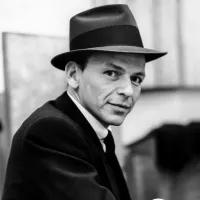
Frank Sinatra nicknamed Chairman of the Board and Ol' Blue...
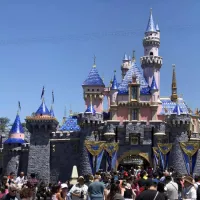
Disneyland located in Anaheim California is the first theme park...
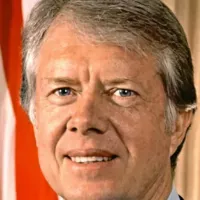
Jimmy Carter the th U S President - was a...
China officially the People's Republic of China PRC is an...
Trending

Joe Montana nicknamed Joe Cool and The Comeback Kid is a Hall of Fame quarterback who played seasons in the...
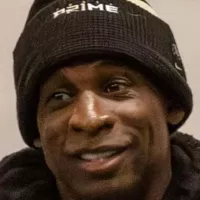
7 months ago Deion Sanders excited to rejoin Colorado, praises Joey McGuire, addresses health concerns.
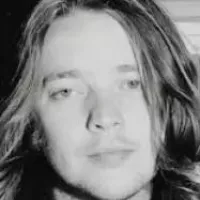
2 months ago Billy Strings Teases Spring 2026 Tour Dates and Shares Activity Sheet.
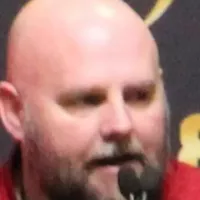
2 months ago Giants GM Defends Roster Amidst Struggles, Acknowledges Mistakes After Daboll's Firing
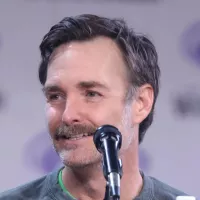
9 months ago Will Forte reflects on SNL, Alan Alda & Tina Fey reunite for Four Seasons.
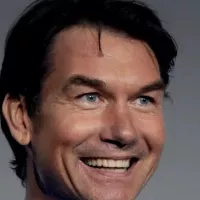
Jeremiah O'Connell is a renowned American actor celebrated for his diverse roles in film and television His career spans from...
Popular

Thomas Douglas Homan is an American law enforcement officer who...

William Franklin Graham III commonly known as Franklin Graham is...

XXXTentacion born Jahseh Dwayne Ricardo Onfroy was a controversial yet...

Jupiter is the fifth and largest planet from the Sun...

Instagram is a photo and video-sharing social networking service owned...

KFC or Kentucky Fried Chicken is an American fast-food chain...
